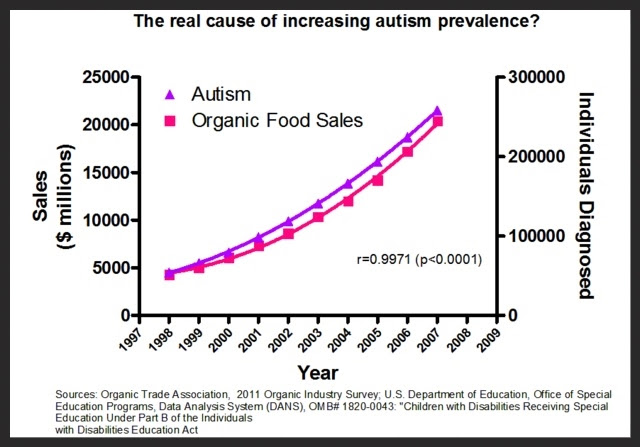The Case for Using a Third-Party Sampling Company

The Case for Using a Third-Party Sampling Company
Part of any sampling strategy is the evaluation of the scientific benefit of each potential sample to be collected. The scientific benefit should be evaluated against the cost to collect that sample. A "cost/benefit analysis" is performed (or should be) for each sample collected and for every parameter proposed. What makes the most sense and provides the most useful data, without sampling everywhere for everything as if cost wasn't an issue.
Financial issues are almost always a point of consideration when it comes to evaluating the sampling plan. However, the question is, whose finances are being considered?
Bias and conflicts of interests in science are rarely discussed. Scientists all like to believe that they can draw a distinct line between a scientific decision and financial decision. However, Scientists are human and humans have bias. When a person benefits, whether financially or otherwise, the person has bias whether they recognize it or not.
A recommendation from your dentist to "replace all your fillings" is suspect when he is the one that is going to do the replacement and get paid for replacing them. It's not to say that the recommendation is not valid, it's just that it is our human nature, and prudent, to be skeptical regarding a recommendation coming from the person benefiting from that recommendation.
How to Overcome Bias and Conflicts
In response to these and other pressures, many groups and agencies have a minimum dollar figure at which proposed work or purchases must be competitively bid. That is, if it's below a certain dollar amount they may proceed without soliciting competitive proposals. Above the set amount, they must solicit a certain number of competitive bids. The competitive bidding process and the requirement for it is designed to keep recommendations scientific and to assure that spending on the good or service reflects the true current market value.
Many state programs with funds set aside  for clean-up projects have requirements for the solicitation and documentation of the competitive bidding process built into the program. Many states programs go even further and build a virtual wall between the Project Manager (PM) and the work recommended by the PM. The reasoning for this set up is to remove bias in the PMs recommendations. The PM is not tempted to recommend more work than needed to create work for his company, because his company doesn't benefit from performing the work.
for clean-up projects have requirements for the solicitation and documentation of the competitive bidding process built into the program. Many states programs go even further and build a virtual wall between the Project Manager (PM) and the work recommended by the PM. The reasoning for this set up is to remove bias in the PMs recommendations. The PM is not tempted to recommend more work than needed to create work for his company, because his company doesn't benefit from performing the work.
 for clean-up projects have requirements for the solicitation and documentation of the competitive bidding process built into the program. Many states programs go even further and build a virtual wall between the Project Manager (PM) and the work recommended by the PM. The reasoning for this set up is to remove bias in the PMs recommendations. The PM is not tempted to recommend more work than needed to create work for his company, because his company doesn't benefit from performing the work.
for clean-up projects have requirements for the solicitation and documentation of the competitive bidding process built into the program. Many states programs go even further and build a virtual wall between the Project Manager (PM) and the work recommended by the PM. The reasoning for this set up is to remove bias in the PMs recommendations. The PM is not tempted to recommend more work than needed to create work for his company, because his company doesn't benefit from performing the work.
Many industries have built in third party performance or third-party verification system as Standard Operating Procedures. Asbestos removal guidelines in many states have a requirement for third party sampling and verification of the completion of an abatement project. The company that does the removal can't collect its own verification samples. A third-party company verifies that the abatement company completed the job and the air is clear for re-occupation. They recognize that there is a bias and potential conflict of interest in collecting your own verification samples. The mold abatement industry, for the most part has the same set up.
Knowing in advance that there will be third party verification of work done, or alternatively third-party performance of work being recommended, can sometimes change the recommended scope of work. For instance, we were involved in a project in Florida where the consulting firm had also been doing the sampling. They had been recommending the sampling of 135 wells every quarter for years. The site owner to save costs brought us in to do sampling as a third party. The consulting firm that was still in charge of the project dropped the number at wells sampled down to 62. They "re-evaluated" and determined they didn't need as many samples as they had been historically collecting. Coincidence? Maybe, but it happens to us all the time. This was just the most extreme example. Third party samplers save money from a documentable reduction in the scope of work.
The point of this article is to address the value and significance and the ever-increasing roll of third party sampling. For companies using third party sampling services, the removal of the potential financial bias concentrates the Scientist's energy on the science of the project. The data collection cost benefit analysis performed free of conflicts of interest, is free from doubt about credibility. If you want to test this hypothesis on your project, give us a call or shoot us an e-mail.
Russell Schindler


Comments
Post a Comment